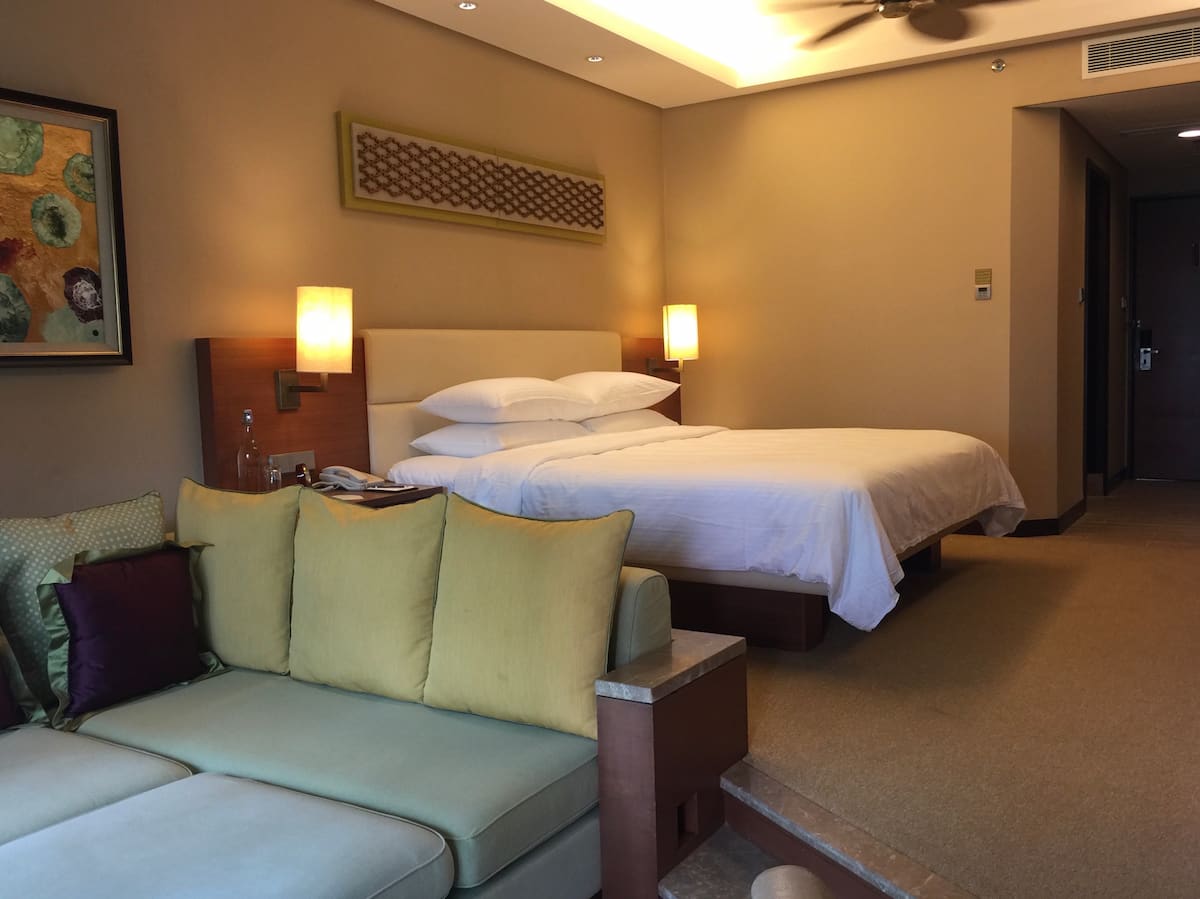Opening a hotel in Hyderabad, a bustling city known for its rich history and culture, can be an exciting and rewarding venture. With a growing number of tourists and business travellers visiting the city, the demand for quality accommodation continues to rise. Below we learn about opening a hotel in Hyderabad, covering aspects such as investment, types of hotel licenses, hotel business planning, registration, costs, profits, and other requirements.

How to Open a Hotel in Hyderabad
Market Research and Business Plan
The first step in opening a hotel in Hyderabad is conducting thorough market research. Understand the local tourism industry, the types of successful hotels, their locations, and the target market’s preferences. Analyse the competition and identify gaps in the market that your hotel can fill. Based on this research, create a comprehensive business plan that outlines your hotel’s concept, target market, location, facilities, and services. The plan should also cover your marketing strategy, management structure, financial projections, and risk assessment.
Choosing the Location
The location of your hotel will significantly impact its success. Ensure the chosen site is accessible near popular tourist attractions, business centres, and transportation hubs. Additionally, consider the safety and security of the area, as well as the availability of utilities like water, electricity, and proper sanitation facilities. Once you have identified a suitable location, negotiate the land lease or property purchase.
Legal Structure and Registration
Choose how your hotel business will be set up legally. It could be a sole proprietorship, a partnership, or a private limited company. Each arrangement has pros and cons, so you should talk to a lawyer for advice. Register your business with the Registrar of Companies (ROC) or the state agency in charge of company registration. Get the Permanent Account Number (PAN) and the Tax Deduction Account Number (TAN) for your hotel. Get a GST Identification Number (GSTIN) and sign up for the Goods and Services Tax (GST).
Investment and Financing
Estimate the total investment required to open your hotel, including land, construction, equipment, furniture, and working capital. Consider various financing options such as loans, private equity, and government schemes. To get money, present a business proposal to banks. For loan acceptance, have a clear payback plan and good credit.
Licenses and Permits
- Trade License: Acquire a trade license from the local municipal corporation to operate a commercial establishment.
- Building Approval: Obtain approval for your hotel’s building plans from the Greater Hyderabad Municipal Corporation (GHMC) or the relevant authority.
- Fire Safety Clearance: Acquire a No Objection Certificate (NOC) from the Fire Services Department to ensure your hotel complies with fire safety regulations.
- Food License: If your hotel has a restaurant, obtain a Food Safety and Standards Authority of India (FSSAI) license to serve food.
- Liquor License: The Telangana State Excise Department issues liquor licences to hotels that sell alcohol.
- Pollution Control Board Clearance: Obtain clearance from the State Pollution Control Board to ensure your hotel complies with environmental regulations.
- Hotel Star Classification: Register with the Ministry of Tourism to obtain a star rating for your hotel, enhancing its credibility and marketability.
In case you missed it: How to Start a Small Hotel Business in India: Business Plan, License, Permits, Setup Cost, Profit, and Requirements

Design and Construction
Hire a reputable architect and construction firm to design and build your hotel. Consider the unique requirements of a hotel, such as guest rooms, bathrooms, lobby, restaurants, conference facilities, and recreational areas. Ensure that the design adheres to local building codes and regulations, as well as accessibility and safety standards. Collaborate with interior designers to create a comfortable and visually appealing environment for your guests. Incorporate energy-efficient and sustainable practices in the design and construction, as these will lower operational costs and appeal to environmentally conscious guests.
Staff Recruitment and Training
Hire experienced and qualified staff to manage and operate your hotel. Key positions include general manager, front office manager, housekeeping manager, food and beverage manager, sales and marketing manager, and security manager. Additionally, recruit staff for various departments like the front desk, housekeeping, kitchen, and maintenance. Provide comprehensive training to your staff, focusing on customer service, communication skills, and hospitality industry best practices. Encourage your staff to participate in ongoing professional development programs to enhance their skills and knowledge.
Marketing and Promotion
Develop a strategic marketing plan to promote your hotel and attract guests. Create an attractive, user-friendly website showcasing your hotel’s facilities, services, and location. Leverage social media platforms and online travel agencies (OTAs) to increase visibility and drive bookings. Offer special packages and promotions to target specific customer segments, such as business travellers, families, or honeymooners. Engage in local community events and collaborate with travel agencies, tour operators, and corporate clients to generate leads and referrals.
Hotel Operations and Management
Establish robust hotel operations and management systems to ensure a seamless guest experience. Implement an efficient property management system (PMS) to manage reservations, guest profiles, billing, and other essential functions. Adopt revenue management strategies to optimise room rates and occupancy levels.
Monitor and evaluate key performance indicators (KPIs) including revenue per available room (RevPAR), average daily rate (ADR), and occupancy rate to guide business decisions and development. Maintain high cleanliness, hygiene, and guest satisfaction standards through routine inspections, feedback, and continuous improvement initiatives.
Investment and Profit Margin
Investment and profit figures for a hotel in Hyderabad can vary widely depending on location, size, facilities, and target market. For instance, a budget hotel may require an investment of INR 50 lakhs to INR 1 crore, while a luxury hotel could demand an investment of INR 10 crores or more.
The potential profit margins for hotels in Hyderabad typically range from 15% to 30%, depending on factors such as occupancy rates, average daily rates, and operational efficiency. As a hotel owner, optimising room rates, controlling costs, and providing exceptional guest experiences to maximise profitability in the competitive hospitality industry are crucial.
Cost Management and Profitability
Monitor and control your hotel’s costs to maximise profitability. Implement cost-saving measures across various departments, such as energy conservation, waste reduction, and efficient procurement practices. Regularly review your pricing strategy to ensure competitiveness and yield optimisation. Foster a culture of cost-consciousness among your staff and reward cost-saving initiatives. Analyse financial statements and performance reports to identify improvement areas and make informed business decisions.
In case you missed it: Monthly 1 Lakh Profit Business: 1 Lakh per Month Income Business in India

Conclusion
Ensure you comply with all legal requirements, obtain necessary licenses, and invest in marketing and staff training. By focusing on guest satisfaction, cost management, and continuous improvement, your hotel business can thrive in the competitive hospitality industry of Hyderabad.
- Handicraft Making at Home: A Small Profitable Business Idea
- Pet-Tech Startups: Innovations for Animal Lovers
- Tech Repair Services: Meeting the Demand for Gadget Maintenance
- Maximizing Rewards: Smart Credit Card Habits for Cashback and Points
- Ultimate Guide to Making Money from Goat Milk Business
- How to Start an Agricultural Value Added Product Business
- Value-Added Business Ideas for Greenhouse: The Best Ways to Make Profits with Greenhouse Farming
- How to Make Profits with Organic Country Chicken: Best Strategies for Beginners
- 10 Value-added Business Ideas for Millets: Low-investment and Highly Profitable